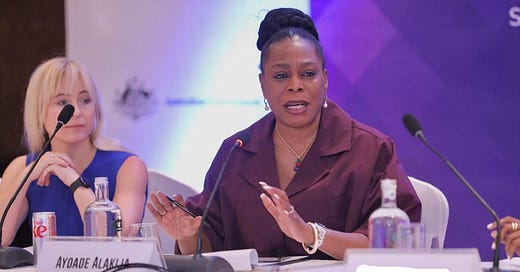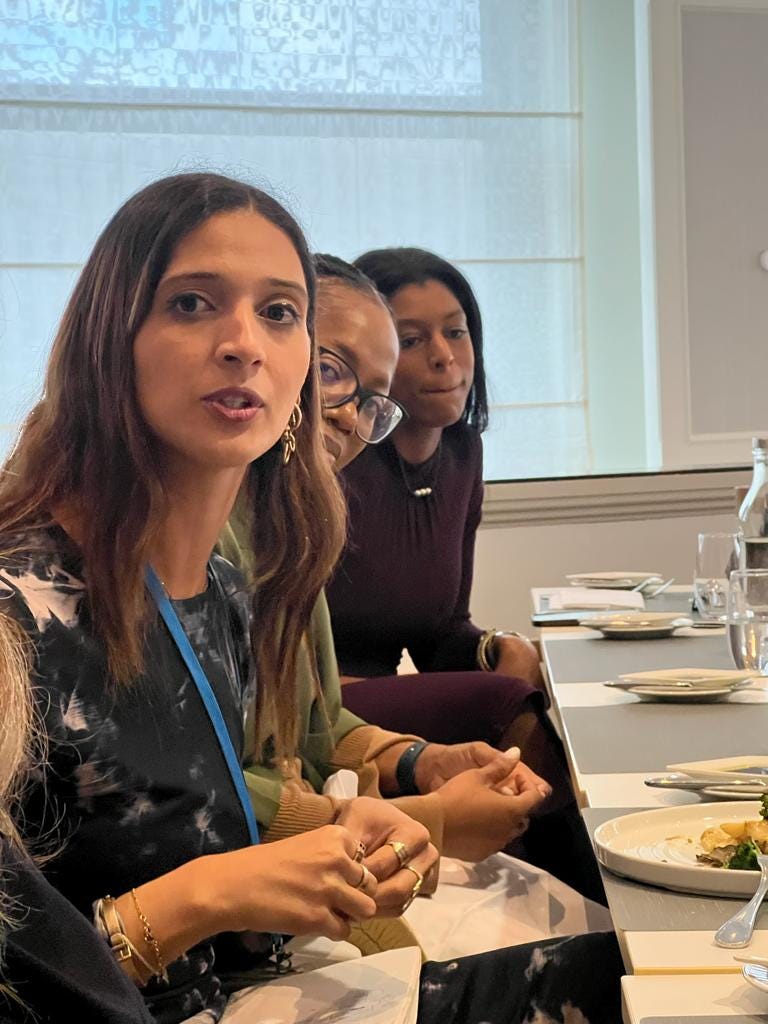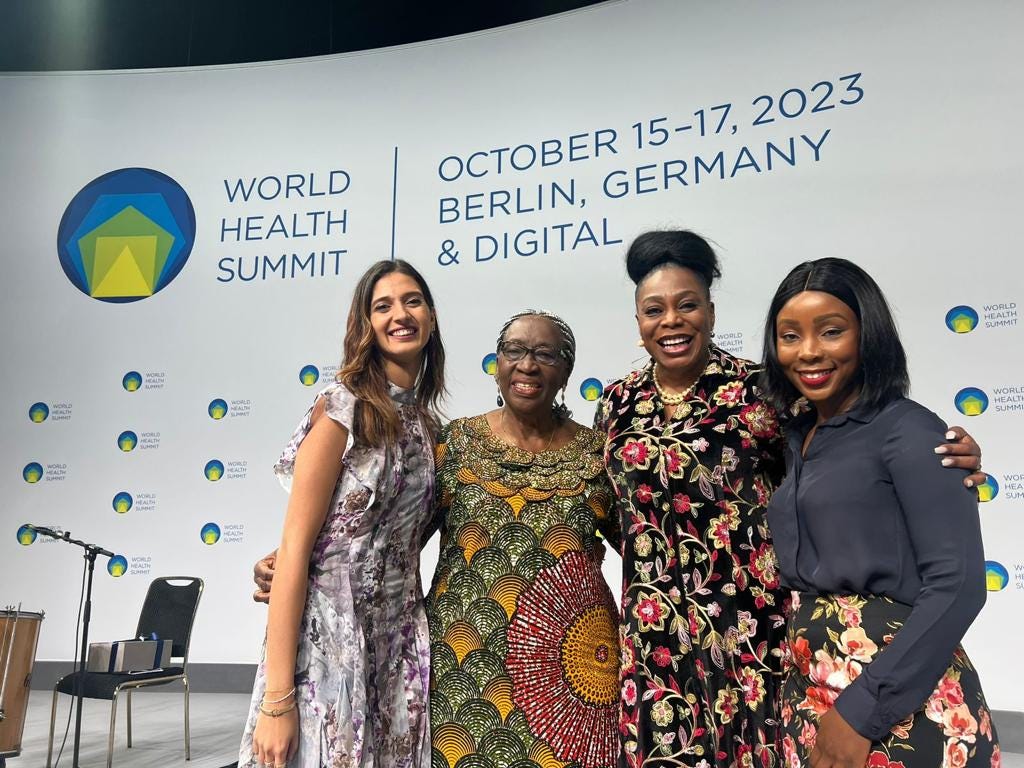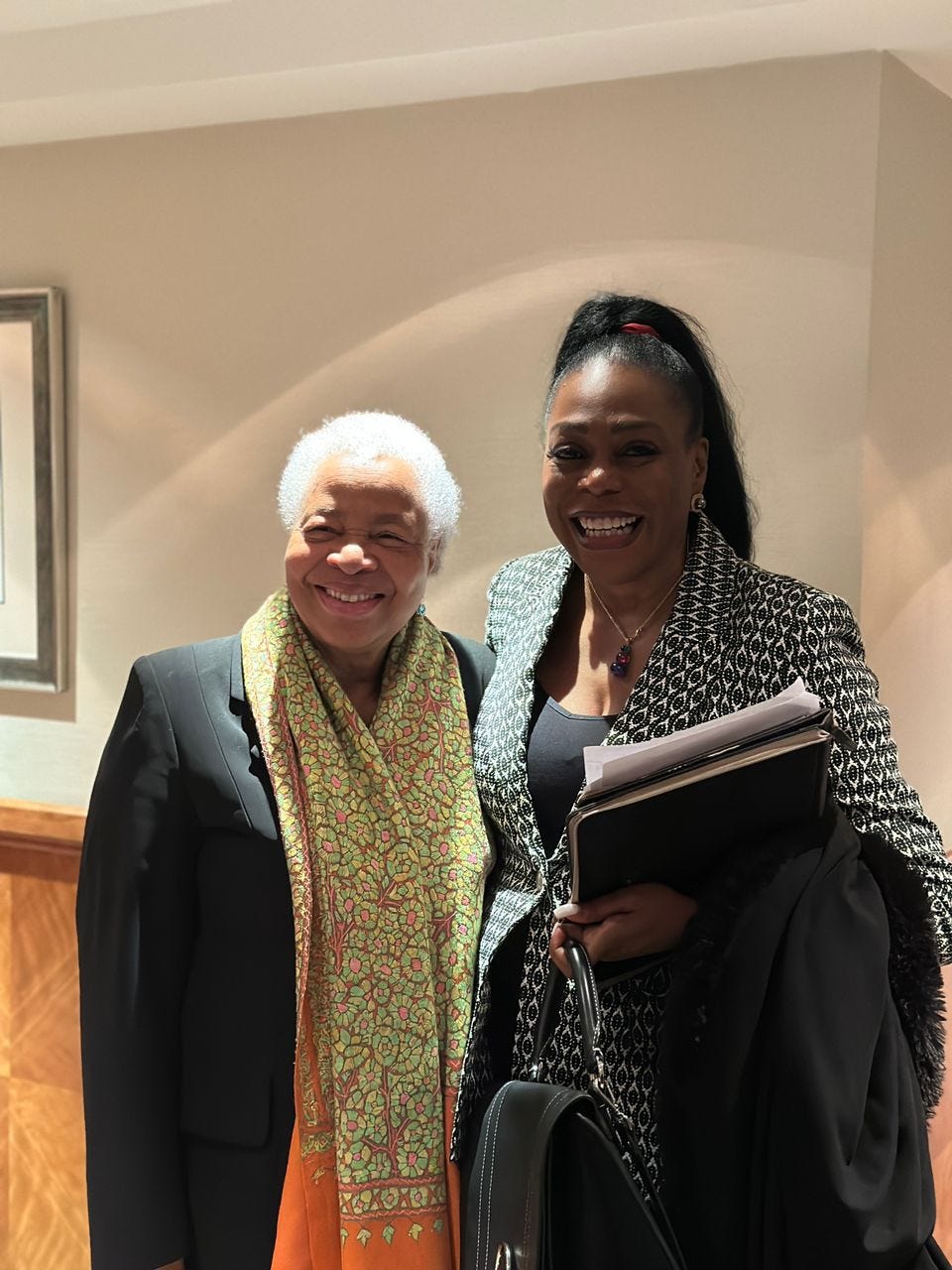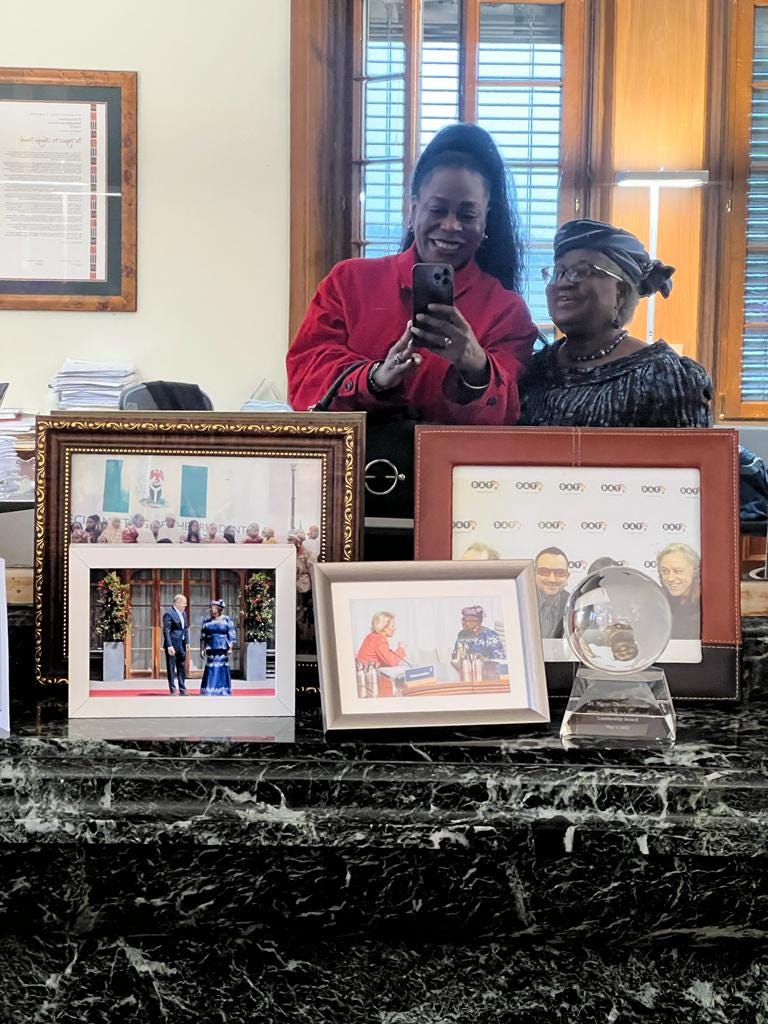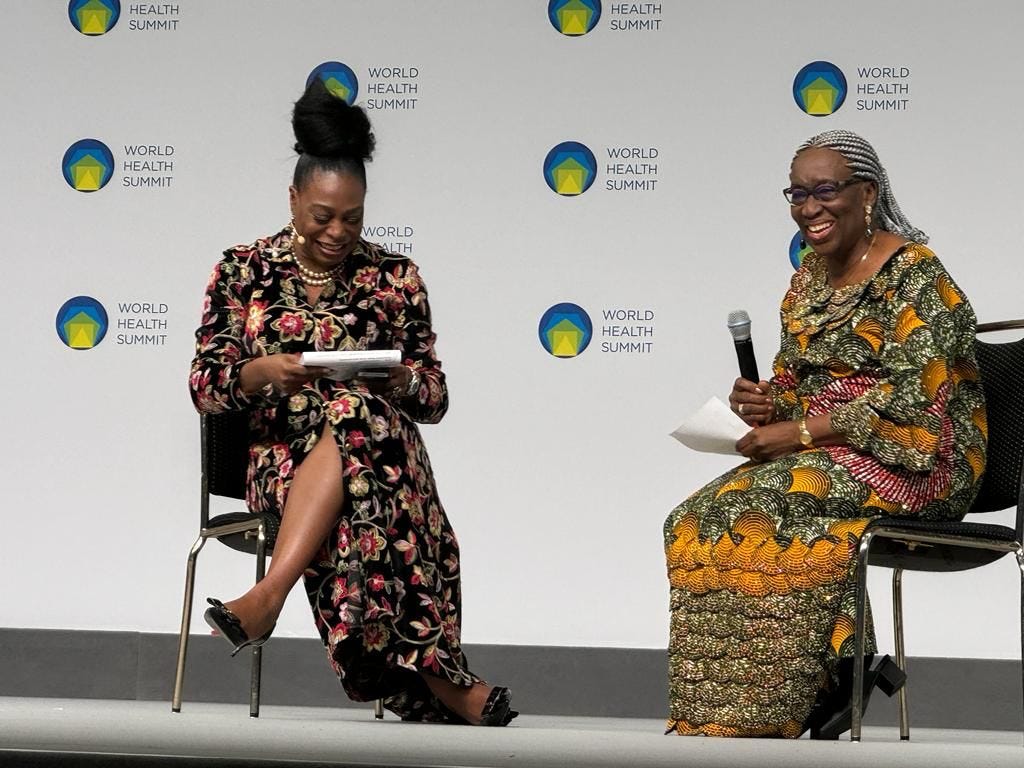In countless reflections on the essence of my work, I have consistently expressed the sentiment that I stand on the shoulders of the giants who came before me. As an age-old African adage profoundly states, 'when the roots are deep, there is no reason to fear the wind.' And oh, how tumultuous, fierce, and relentless the winds are today! There are gales of geopolitical unrest, gusts heralding a shifting world order, and the palpable winds of climate change.
It becomes distressingly clear that individuals uprooted by societal forces or those stripped of their foundational anchors due to oppression, conflict, or injustice are left vulnerable. They are easily swayed by every emerging crisis and falter amidst storms of challenges.
What then, you might ask, imbues us with these steadfast roots? A significant anchor is continuity. Continuity serves as the foundation that stabilizes us, while courage intertwined with innovation bestows upon us robust branches and vibrantly hued foliage. This continuity reveres the insights of yesteryears, even as we pioneer novel paradigms to render our world more harmonious, equitable, and devoid of prejudice and harm.
At the recently concluded World Health Summit in Berlin, I had the distinct privilege of hosting a luncheon discourse on the peripheries, with the theme 'Influencing Global Health & Geopolitics.' The crux of our conversation targeted the empowerment of voices from the South to shape and influence policy and diplomacy. It was an eclectic assembly, ranging from Emmy Award-winning designers to senior policymakers, from luminaries in global health and climate sciences to fervent youth advocates, and from small countries and island states like Jamaica and Chad to countries like the United States, Brazil, and the Philippines. This convergence of multicultural and multigenerational insights aimed to dissect the intricate tapestry of behavioral shifts that invariably inform policy evolution.
Our discourse ventured into the strategic and nuanced tactics imperative for fostering change in this rapidly evolving global landscape—a realm where communication methodologies have undergone a revolution, manipulation of narratives has surged, and all of this transpires against the backdrop of fluid geopolitical contours and a planet confronting multiple crises.
It is disheartening to note that in our era, it is often fashionable to include a representative from a lesser-heard group merely as a token gesture toward diversity and inclusion. Such inclusion shouldn't merely be a tokenistic nod; it ought to be seamlessly integrated into the mainstream. Instead of superficially ticking boxes, it should be an intrinsic, non-negotiable aspect of global discourse and decision-making. My own learning journey encompasses wisdom, as much from my daughter—a lawyer, an Olympian, and a fervent climate advocate—as from the seasoned insights of retired state leaders with decades of unparalleled experiences. Such diverse interactions cultivate not only a spectrum of knowledge but also foster genuine empathy, facilitating authentic dialogues across generational, socio-economic, political and cultural divides.
For me, hosting this lunch dialogue was immensely significant as it took us deep into the realms of intergenerational perspectives and provided insights into the nuances of behavioural and policy transformation.
A significant portion of societal friction—be it resistance to natural and incremental reforms which may be perceived by some as too avant-garde, generational chasms leading to political rifts, or misinterpretations sprouting from generational transitions—originates from historically entrenched categorizations based on age and status, inadvertently forging distinctive societal segments.
Analogous to class demarcations, these generational stratifications are discerned through evolving cultural ethos and unique generational challenges. Every hierarchical structure, especially those steeped in discrimination, invariably crafts silos with their own lexicons, perspectives, and occasionally conflicting worldviews. Traversing these divides mandates the cultivation of genuine intergenerational alliances, ones that are untainted by power asymmetries or exploitative nuances.
Constructing such bridges of mutual respect and egalitarianism has the power to close communication chasms, curb negative tendencies, and synchronize disparate values. And as I ponder the influence and aspirations of the youth, I am reminded of words uttered by my insightful daughter, Danielle: 'it is our future.' In remarking on the formidable challenges looming ahead for her generation and the world in general she also said: 'We are the ones walking into this unknown world. Our most clear and present interest is our own survival.'
Our current decisions sculpt the future landscape for generations like Danielle's, determining whether they inherit a world in which to flourish and nurture future generations. If indeed as she says, their future is at stake, does it not then naturally follow that we should all be listening closely to what they say, how they think, what they feel?
A particularly impactful recent engagement I had was with the revered collective of senior leaders, The Elders. Their assembly radiates an aura of unparalleled wisdom, an aggregation of former Heads of State and Global Luminaries. Positioned between the age bracket of these venerable Elders and the generation of my daughter, I perceive the world through a unique lens. This vantage point magnifies the boundless potential intergenerational collaboration offers in healing our planet.
On the occasion of his 89th birthday, the globally venerated leader, Nelson Mandela, unveiled the group he called 'The Elders.' He envisioned a compact, dedicated cadre of leaders striving selflessly to address global challenges. In his eloquent announcement, he proclaimed:
“In today’s world, many of the problems we face are global in nature. These include climate change, pandemics such as AIDS, malaria, and TB. And of course, that entirely human-created affliction: violent conflict. The structures we have to deal with these problems are often tied down by political, economic, or geographical constraints. As institutions of government grapple – often unequally – with challenges they face, the efforts of a small, dedicated group of leaders, working objectively and without any vested personal interest in the outcome, can help resolve what often seems like intractable problems. We have the makings of such a group. Some of them are here; others could regrettably not attend. Using their collective experience, their moral courage, and their ability to rise above the parochial concerns of nation, race, and creed, they can help make our planet a more peaceful, healthy, and equitable place to live. Let us call them Global Elders, not because of their age, but because of their individual and collective wisdom.”
That speech is worth reading in full.
Being offered the opportunity to listen to such luminaries—and, crucially, to share my perspectives with them—underscores The Elders’ unwavering commitment to global connectivity and the indispensable continuity they provide, rooted in time-tested wisdom. If they symbolize our deep-seated roots, we emerge as the resilient branches.
As I observe my daughter's generation, characterized by their audacity, resilience, and inventiveness, I am filled with optimism. If my generation makes up the branches then the generation of my daughter, those brave, creative, vibrant young adults, are the verdant foliage and vibrant fruits of our collective human endeavor. Their unwavering determination to challenge the status quo assures me that our world's future remains promising.
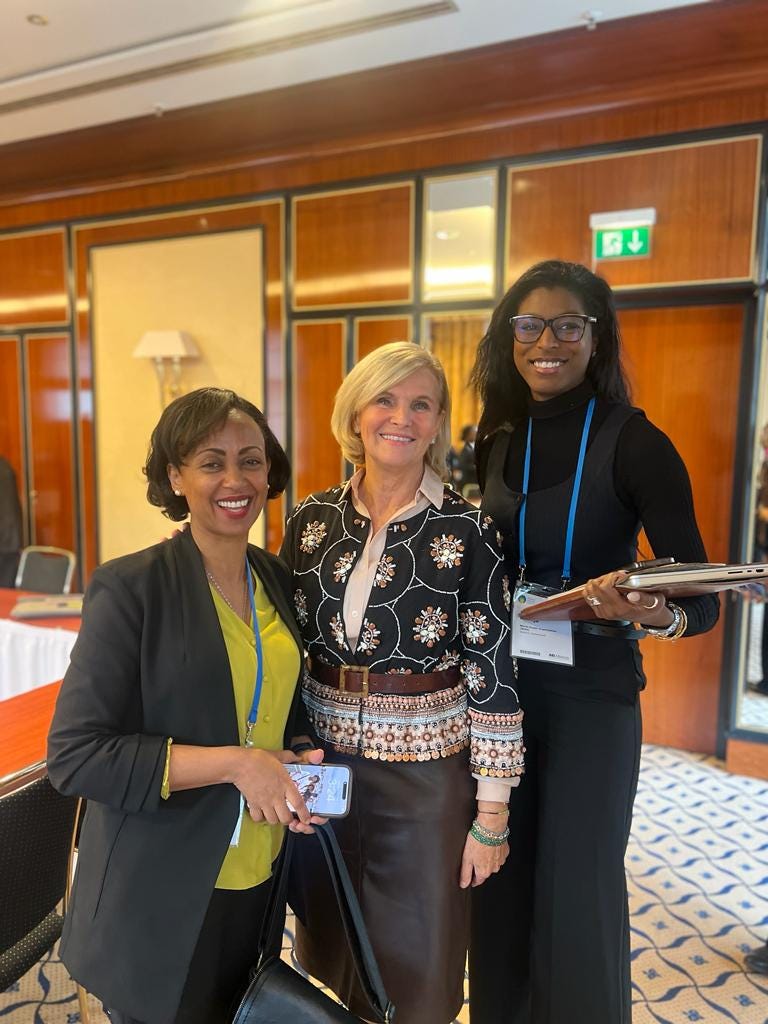
As we confront myriad challenges, The Elders, with their reservoir of wisdom and experience, occupy a unique niche, their counsel, transcending even the immediacy of crises like COVID-19. Their influence might be the linchpin ensuring equity transitions from a transient notion to a deep-rooted ethos permeating all global initiatives.
Reflecting on the words of the legendary Chinua Achebe, 'Until the lion learns how to write, every story will glorify the hunter', The Elders have the unique position of being able to push for, and perhaps even guarantee that every voice resonates, and all narratives are represented, especially those of the marginalized and vulnerable. Singular endeavors have indeed made inroads, but they remain incomplete in isolation. The need of the hour is a synchronized, collective voice—a harmonious symphony championing equity.
Early in my professional life as a medical doctor, I brimmed with idealism, centering on battling inequities, especially those plaguing the Global South. While time has melded realism into my fervor, that foundational essence has remained undeterred and I continue to speak and write about the potential of the Global South and South-South cooperation, equity for and investment in women, girls and other vulnerable groups, and recalibration of power in global health and politics.
The Elders, with their reservoir of wisdom, can engage in heart-to-heart conversations with political figures, impressing upon them that while the world may be gradually lending an ear to cries for equity, formidable barriers still exist—whether they be resources, bureaucratic hurdles, emotional tolls, or transactional costs. The transformation we long for is not merely in policy, but at the very heart of our global system. The core issues are rooted in systemic inequities that persist, often invisibly, in the fabric of our societies. Recognizing, challenging, and reshaping these imbalances are paramount.
This is what I like to call 'intergenerational diplomacy’, a vision of mutual respect and understanding bridging the vast chasms that often divide generations. It seeks to dismantle the intricate web of suspicion and misunderstanding that festers between the epochs of our collective experience. It is a call to arms, urging us to pause and reflect upon the deep-seated beliefs and affiliations held not only by ourselves but by those who have come before us and those who will come after.
Imagine the visceral shock, the raw dissonance one feels upon the revelation of their parents' political inclinations — perhaps an allegiance to politicians with notorious racist, misogynistic, or xenophobic reputations. Such realizations are not just ideological; they confront our core, challenging the foundational beliefs and values we presumed were shared with those who raised us.
Conversely, let us turn our gaze to the older vanguards of society. They too grapple with profound astonishment, and at times, disillusionment. Their bewilderment in part springs from the evolution of values and beliefs. The ideals they once held as sacrosanct, the principles that guided their every decision, may seem obsolete or even antithetical to their descendants. It is an unsettling realization that the worldviews they cherished, perhaps forged amidst struggles and trials of their own time, are no longer revered by their offspring, who now contend with challenges inconceivable in bygone eras.
This is where the strength and the elegance of intergenerational diplomacy come to the fore. It fosters a space of dialogue, a realm where generations can converse, empathize, and learn from one another. Where they can, in unity, reshape the narratives of their collective journey, ensuring that wisdom from the past enriches the paths into the future.
Speaking of intergenerational diplomacy, it was also my privilege recently in India to interact with brilliant young diplomats attending the Raisina Forum for the Future of Diplomacy.
There were thirty five young diplomats from 40 countries. The last time I met this group, I met the youngest member of parliament form Ukraine. He was serving at the warfront and had taken the time out to be there. Every time I read of the war in Ukraine, I wonder how he is, this resilient individual — negotiating the complexities of politics, facing the horrors of war, and navigating the intricate tapestry of life. His resolve, his unwavering dedication, and his spirit are emblematic of the vigor and determination of his generation. Individuals of such mettle bolster my conviction that if any group can succeed in navigating our challenges and shepherd us to a brighter dawn, they can.
Last year, on the sidelines of the G20 Foreign Ministers Meeting, I encountered a young woman who served with the UN in Gaza. After my presentation, she gifted me a delicate hand-stitched purse crafted by women enduring challenging conditions. This purse now rests beside my bed, serving as a poignant reminder of her, especially following the recent war and humanitarian crisis in the region. She has consistently been in my reflections and prayers. Up until the recent internet blackout, I was relieved to learn she remained safe. However, she continually occupies my thoughts, as do the civilians, especially all of the women and children in the region living in the shadow of conflict. All too often, these innocent souls are untouched by the origins of the disputes yet bear its heaviest consequences, casualties of the violent choices, often of male actors, politicians and combatants. In speaking of generational divides we must think of gender divides as well, of the many ways in which women are peculiarly affected by policies and politics. There can be no equity without equity for women and children.
As we ardently endeavor to reshape our world, to shift the Overton window and to redress the injustices of both history and the present day, we derive unparalleled strength from our roots of continuity. This unyielding foundation offers an unbroken lineage of knowledge and wisdom, ensuring we aren't ensnared in an endless loop of reinventing the fundamentals. Just as in the realm of science, where groundbreaking theories emerge from the scaffold of established knowledge, our historical experiments and processes endow us with a steadfast anchor.
Thus, I pose a reflective query to those of my generation and to those who have journeyed longer on this Earth: When was the last moment you genuinely opened your ears to the voice of a young adult? To truly listen, not with the patronizing intent of offering unsolicited counsel, but with a genuine thirst to learn and assimilate? To view them not as fledglings but as the formidable force that will inherit and steward the world we bequeath. Conversely, to the spirited youth amongst us: When did you last forge a genuine bond with someone from my generation or those senior? When did you last immerse yourself in their narratives, seeking understanding and wisdom?
The symbiotic interchange between generations is an undervalued treasure trove. My fervent hope is that each one of us endeavors, in our unique capacities, to construct or fortify these intergenerational bridges. In doing so, we don't merely aim for a better world in the abstract but strive to enrich the immediate world around us, rendering it a haven of understanding, collaboration, and mutual respect.
PS. After writing this, I have since received a message (via a mutual friend)from the humanitarian worker in Gaza I mentioned above:
“Thank you…
Hopefully we will keep surviving
It is so hard
We need the prayers very much”
My relief is marred by an intense foreboding in the face of escalating violence there. I fervently keep her, along with all the innocent souls caught in war, in my thoughts and prayers. It is a painful reminder of our collective failure as a world to truly embody the values we so proudly proclaim. Unless we take immediate action to end the violence, we are carelessly marching towards an even graver global conflict.
